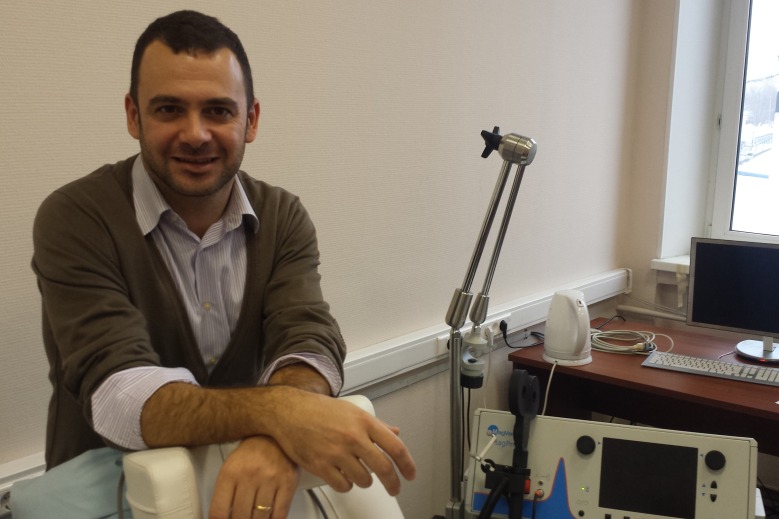'I Felt Welcomed and This Is Important'

- What is the focus of your research in psychology?
- Basically, my topics are memory and motor control. To study memory I started with cognitive processes and recognition processes. I used faces as a research object because they represent very complex items to remember and recognize. They activate the whole network in our brains: there are certain areas that respond very well to faces compared to other objects. We can recognize faces thanks to our visual perception, but this also has to be integrated with the semantic context related to the person. My research aims to understand how semantic context affects face recognition. When I was working in London I investigated how much personal information is important for face memory.
- Some people are very good at recognizing people they have previously met, while others find it hard to remember faces. What are the factors here?
- Context is very important for memory functions. We call it the butcher-on-the-bus phenomenon. You go to the butcher’s shop to buy meat, so you always see that person in that particular context. But if you meet the butcher on the bus you can’t recognize him because you’ve lost the semantic background.
- Will you continue studying face recognition?
- I have moved away from this topic a little bit because I was attracted by another brain stimulation technique, transcranial magnetic stimulation. I extended my field of interests to investigate memory of objects and landscape in order to get a deeper understanding of how the network underlying memory processes works. In London I met an interesting Japanese researcher, Ryota Kanai, who was like a second mentor for me. Together we pioneered a new advanced technique of brain stimulation, the transcranial alternating current stimulation. Usually psychologists use brain stimulation to interfere in various brain areas in order to build functional maps of cortical networks. My purpose was to change the way we use brain stimulation and to start using it to boost brain processes.
I went back to Siena and continued with this new technique. Finally, I mastered it and published a paper. This allowed me to get a young investigator grant in Italy as a principal researcher. The grant was awarded by the Ministry of Health, as this method can be used as a neuro-rehabilitation technique for patients with memory diseases, motor disorders and other kinds of impairments. I got consistent funding for three years to create my group in Siena and this project is still ongoing.
- Why did you apply for this position at HSE?
- I went to the lab during my first visit and I saw that this university has modern equipment that would allow me to go further with my research and lead my group. That’s the plan – to create my group and do research into brain stimulation by combining different techniques. I could also see other professors were interested in what I was doing, I felt welcomed and this is important for me personally. Later on I began reading about the institutional development program and learned that HSE is committed to growth and science.
Matteo Feurra comes from Italy where he studied experimental psychology and defended his PhD dissertation at the University of Florence in 2009. While pursuing his doctoral studies Feurra worked in London under the supervision of Prof. Vincent Walsh, an international expert in brain stimulation at the University College of London (UCL). In 2009 - 2011 he did research as a postdoctoral fellow at the University of Siena in Italy. In 2011 Feurra won a national grant to work as a principle investigator on his project “Memory Enhancement by Advanced Non-Invasive Brain Stimulation: A Project on the Neuro-rehabilitation of Patients with Memory Diseases.” In September 2014 he joined the HSE School of Psychology as an Assistant Professor. In his free time Feurra loves playing tennis, listening to blues, jazz and classical music and looks forward to seeing a ballet at the Bolshoi Theatre.
The full text of the interview can be found in Issue 10 (17), December 2014. If you are not on our regular mailing list yet, please subscribe and get fresh issues of The HSE LooK every month!